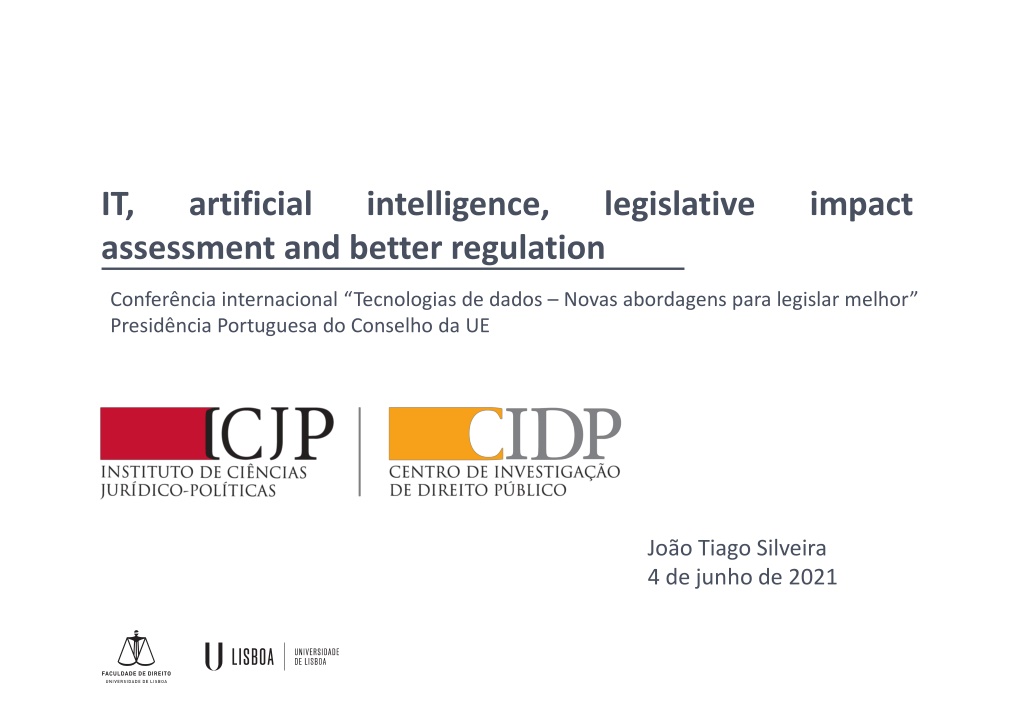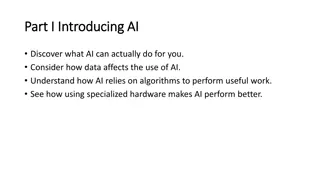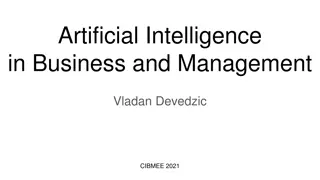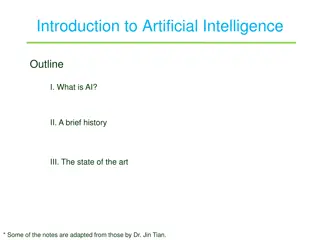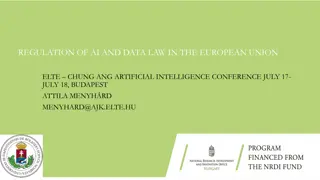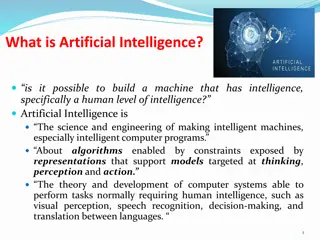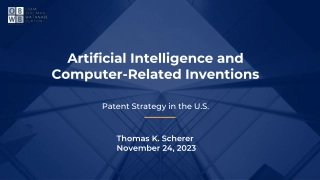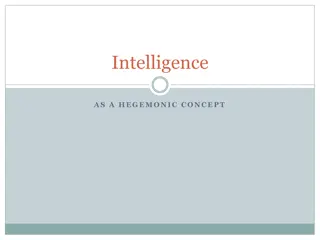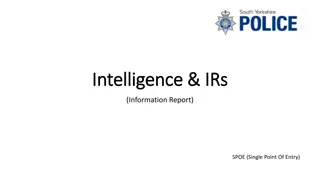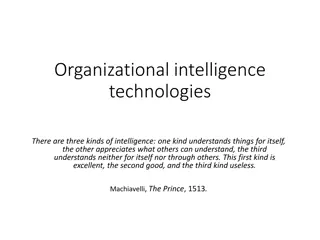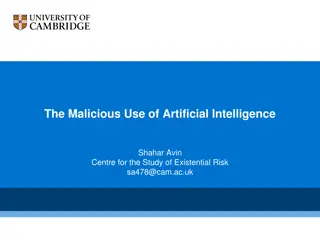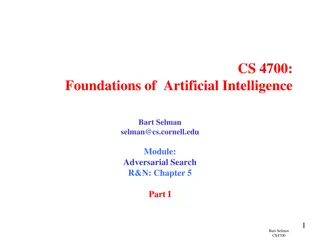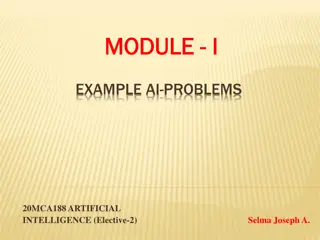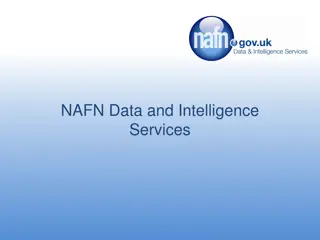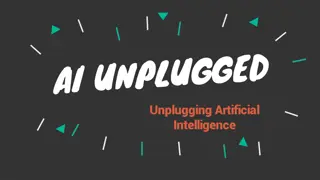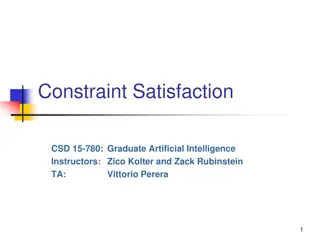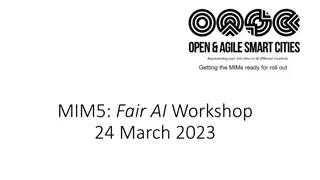Artificial Intelligence and Law: Current Challenges and Solutions
Artificial intelligence is already being used in the legal arena to address challenges such as handling high volumes of information and navigating globalized legal activities. AI tools like contract analysis software, e-Discovery tools, and predictive software are improving efficiency and outcomes in legal processes. For instance, in China, AI robots are employed to predict litigation outcomes and suggest alternative dispute resolution methods, showcasing the impact of AI on the legal sector.
Download Presentation

Please find below an Image/Link to download the presentation.
The content on the website is provided AS IS for your information and personal use only. It may not be sold, licensed, or shared on other websites without obtaining consent from the author. Download presentation by click this link. If you encounter any issues during the download, it is possible that the publisher has removed the file from their server.
E N D
Presentation Transcript
IT, assessment and better regulation artificial intelligence, legislative impact Confer ncia internacional Tecnologias de dados Novas abordagens para legislar melhor Presid ncia Portuguesa do Conselho da UE Jo o Tiago Silveira 4 de junho de 2021
Summary 1. Artificial Intelligence and law: Is artificial intelligence already used in the legal arena? 2. Artificial Intelligence and legislative impact assessment 3. Other IT tools for better regulation 4. Other better regulation issues
Artificial Intelligence and law 1. Is artificial intelligence already used in the legal arena? Current challenges for legal activities: High volume of information/Information requires a higher degree of technical expertise to be analyzed Globalization: legal activities are not as linked to local jurisdictions as in the past Often, legal issues involve more than one jurisdiction In several cases, addressing legal issues requests knowledge from other areas of expertise (e.g. architecture, energy, environment, chemistry, etc) Efficiency and results: clearer responses from regulations and legally trained persons, speedier courts decisions and reduction of costs
Artificial Intelligence and law 1. Is artificial intelligence already used in the legal arena? IT solutions based on artificial intelligence, analytics and machine learning already used in legal activities: Software to analyse and review contracts in order to detect patterns and differences for due diligences purposes Drafting and management of contracts e-Discovery: tools to discover data in electronic format information (documents, case law, doctrine, etc) Predictive software to predict the outcome of courts decisions
Artificial Intelligence and law 1. Is artificial intelligence already used in the legal arena? 1. AI robots in China to predict decisions and avoid cases before courts The AI robots in Beijing, Shanghai and Jiangsu are capable of evaluating possible litigation outcomes for a party before the case is filed. Such evaluation is based on analyzing over 7,000 Chinese laws and the numerous court decisions saved in its system. The AI robots are also able to suggest other modes of dispute resolution to parties seeking to commence litigation. For example, the robots will suggest that parties consider conciliation or proceed with other dispute resolution methods such as arbitration if an arbitration clause (https://www.bakermckenzie.com/en/insight/publications/2018/02/adopti on-ai-chinese-courts) is in place.
Artificial Intelligence and law 1. Is artificial intelligence already used in the legal arena? 2. AI in China to detect crimes before they happen AIs could also help to detect crimes before they happen. Meng Jianzhu, former head of legal and political affairs at the Chinese Communist Party, said the Chinese government would start to use machine learning and data modelling to predict where crime and disorder may occur. Artificial intelligence can complete tasks with a precision and speed unmatchable by humans, and will drastically improve the predictability, accuracy and efficiency of social management, (https://www.worldgovernmentsummit.org) Mr. Meng said.
Artificial Intelligence and law 1. Is artificial intelligence already used in the legal arena? 3. AI in the USA to detect in advance if someone will commit crimes again after a punishment In the US, algorithms help recommend criminal sentences in some states (https://towardsdatascience.com): COMPAS: Correctional Offender Management Profiling for Alternative Sanctions, is a case management and decision support tool developed and owned by Northpointe (now Equivant) used by US Courts to assess the likelihood of a defendant becoming a recidivist.
Artificial Intelligence and law 1. Is artificial intelligence already used in the legal arena? 4. France: banning judge analytics Article 33 of Loi 2019-222, of 23rd March 2019 amends the Code de l'organisation judiciaire, and provides for imprisonment up to five years the evaluation, analysis, comparison or prediction of judge s practices Les donn es d identit des magistrats et des membres du greffe ne peuvent faire l objet d une r utilisation ayant pour objet ou pour effet d valuer, d analyser, de comparer ou de pr dire leurs pratiques professionnelles r elles ou suppos es. La violation de cette interdiction est punie des peines pr vues aux articles 226-18, 226-24 et 226-31 du code p nal, sans pr judice des mesures et sanctions pr vues par la loi n 78-17 du 6 janvier 1978 relative l informatique, aux fichiers et aux libert s.
Artificial Intelligence and law 1. Is artificial intelligence already used in the legal arena? 5. UK worried about AI algorithms used in criminal justice A special commission created by the President of the Law Society was aimed to study the impact od AI and algorithm s in the legal world concluded: UK needs to create a national register of algorithms used in the criminal justice system that would include a record of the datasets that were used in training.
AI and legislative impact assessement 2. Artificial intelligence and legislative impact assessment Will we see machine learning/big data used to improve impact assessments? Effective impact assessment may take time: Impact assessments are frequently criticized by delaying the legislative procedure Extensive information, data and statistics need to be collected and analyzed for legislative impact assessments Information, data and statistics are frequently found in different sources and their collection is not always an easy task
AI and legislative impact assessement 2. Artificial intelligence and legislative impact assessment Machine learning/using of big data may provide for: Easier collection of data from different sources and entities Collection of data from currently unavailable sources (e.g. documents with court s decisions) Automation on measuring impacts
AI and legislative impact assessement 2. Artificial intelligence and legislative impact assessment What about the use of AI to ease integrated RIAs? RIAs are broader and is becoming more frequent to integrate the assessment of avoiding environmental, social and other topics in RIAs However, there is no satisfactory methodology to assess and balance such factors in a fully integrated manner Example: which methodology is able to measure the impact on biodiversity jointly with the economical costs and benefits of a new framework aimed to ease the implementation of wind farms? red tape, economical,
AI and legislative impact assessement 2. Artificial intelligence and legislative impact assessment Would AI help to set up a new methodology aimed to jointly measure the impacts of economical, social, environmental impacts & reduction of administrative burdens (as well as other impacts) for legislative impact assessments?
Other IT tools for better regulation 3. Other IT tools for better regulation IT tools may also help on other better regulation topics (as least as much as for legislative impact assessments): Legislative drafting: to improve clarity and use common patterns To ease consultation procedures when preparing new laws/regulations The allow for smarter and easier access of legislative information for non legally trained persons
Other better regulation issues 4. Other better regulation issues Legislative impact assessments are important and political decisions should consider them However, let s not believe that impact assessment is the key and the truth for every political option: What would happen if a regulatory impact assessment would have been carried out to decide if the Vasco da Gama journey should be made? What would happen if the same would have been carried out in 1502 to decide if the Mosteiro dos Jer nimos should be built? I hope no regulatory impact assessment is carried out to decide if we should make our journey to Mars
Other better regulation issues 4. Other better regulation issues We should not forget good old fashioned better regulation topics on cutting red tape and reduction of administrative burdens These are the problems that more often affect European citizens and companies and EU should continue to address them directly EU legislation (as well as national legislations) continue to create new burdens: In Portugal, for drivers with driver s licenses issued after 30th July 2016, it is mandatory to renew it every 15 years: more costs and red tape than before due to EU legislation Mandatory energy performance certificates due to EU directives: energy performance certificates are paid and inspections are required Increase transactions of houses and do not involve any obligations of performing works to enhance energetic efficiency)
Obrigado! www.joaotiagosilveira.org joao.tiago.silveira@mlgts.pt joao.tiago.silveira@gmail.com joaotiagosilveira@fd.ulisboa.pt
